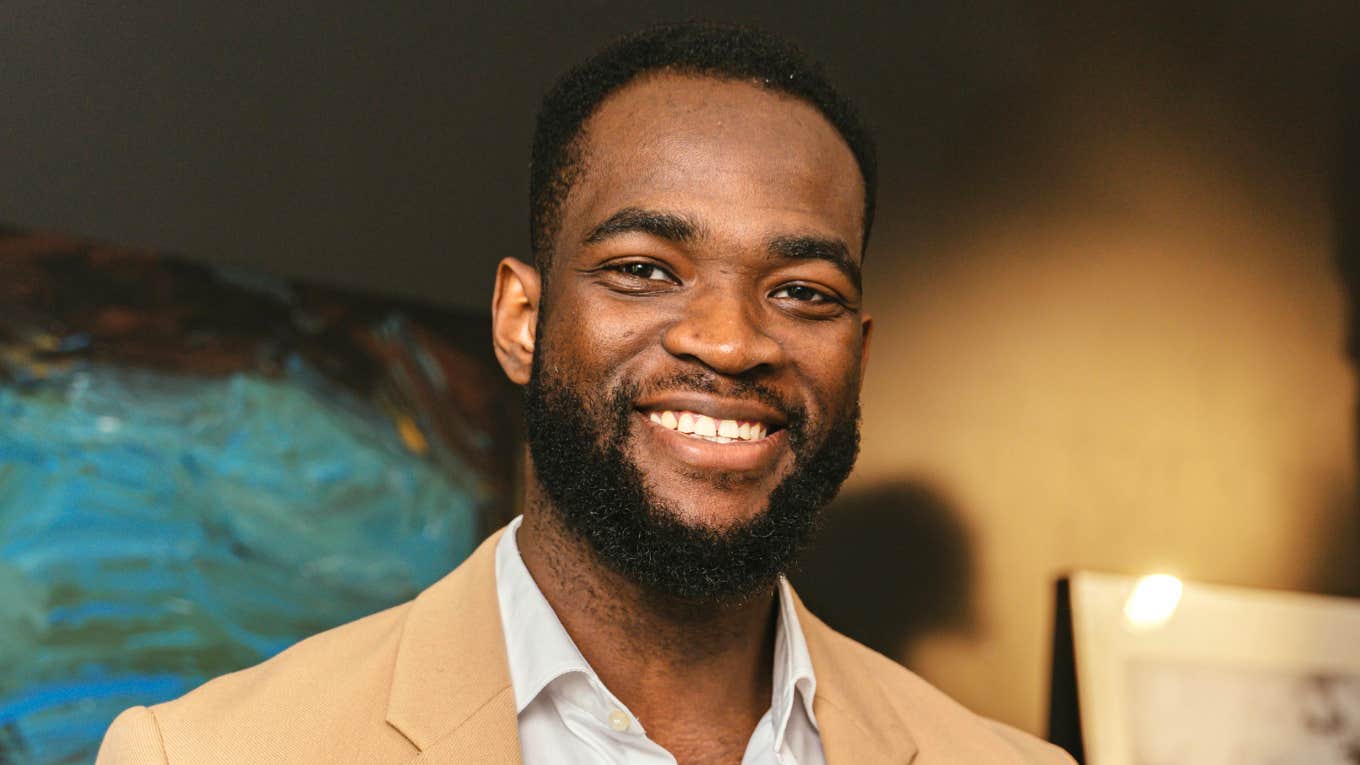The Art Of Being A Winner: 11 Simple Habits Of Naturally Winning People
How naturally winning people make it look so easy.
 ANTONI SHKRABA production | Pexels
ANTONI SHKRABA production | Pexels We all know someone who just seems to win at life. Maybe you've noticed that they seem to effortlessly land opportunities or bounce back from setbacks. Winning isn't about talent or timing, though — it's about mindset.
Mohnish Pabrai, the billionaire investor who turned $1 million into over $300 million, thinks differently. His main philosophy is beautifully simple: heads, I win big; tails, I don’t lose much. He plays the game smart, and I’ve learned a lot from him about how to maximize your odds for success in a range of areas.
The beauty of Pabrai's ideas is that they're accessible to anyone willing to adopt them, and once you do, you'll realize winning was never as complicated as you thought.
Here are 11 simple habits of naturally winning people:
1. They clone themselves
Pabrai’s most famous advice is simple: ‘Clone yourself.’ Stop trying to reinvent the wheel when someone else has already built something that works well. Study what works, then copy it shamelessly. Pabrai himself cloned Warren Buffett’s investment approach and made billions. This applies to new businesses as well as the next post you share on social media.
The beauty here is that you’re not gambling on unproven ideas. You’re following blueprints that have already worked for others. The downside is minimal because you’re not pioneering anything risky. The upside is massive because proven models scale.
Find someone who’s already succeeded in your field. Study their methods. Copy their systems. Then improve on them and/or make them yours.
2. They bet big on sure things
 Ground Picture / Shutterstock
Ground Picture / Shutterstock
Pabrai doesn’t spread his investments thin across hundreds of stocks. When he finds something with compelling odds, he goes big. This applies beyond investing. When you spot an opportunity where success is highly probable and the potential payoff is enormous, concentrate your resources there.
Don’t diversify your attention across a dozen half-hearted efforts. The key is patience. When the clear winners appear, swing hard. The certainty effect is a cognitive bias that describes the human tendency to favor a sure gain over a gamble with a higher expected payoff. The appeal of a guaranteed win, no matter how small, tends to outweigh the value of a riskier alternative.
3. They fail cheap and fast
The quickest way to reduce risk is to test your ideas with minimal investment first. Pabrai validates investment theses before committing serious capital. You should validate your business ideas before quitting your job.
Test your product concepts before building the full version. Run small experiments before making big bets. Your failures will teach you everything you need to know, but only if they don’t bankrupt you first.
4. They focus on businesses with ‘moats’
Pabrai looks for companies with sustainable competitive advantages. This is what Buffett calls ‘economic moats.’ These businesses can maintain high returns for years because competitors can’t easily replicate what they do.
Apply this thinking to your own career and projects. Build skills that are hard to replicate. Create systems that become more valuable over time. Develop expertise that compounds. For example, in my own work as a writer, I’ve developed a philosophy for confidence and freedom that combines many philosophies, including my own experiences. The goal is to create advantages that protect you from competition and economic downturns.
The fear of losing money is often more powerful than the motivation for gaining it. Research shows that moats help mitigate this by signaling a company's resilience, which can prevent an investor from selling during a temporary downturn to avoid a loss.
5. They think like an owner, not a gambler
Pabrai approaches every investment as if he’s buying the entire business. He studies the fundamentals, understands the industry, and evaluates management quality. Most people approach opportunities like lottery tickets. They hope for the best without understanding what drives success.
Whether you’re choosing a career, starting a business, or making any significant decision, dig deep. Understand the underlying mechanics. Know what you’re actually betting on.
6. They embrace boring, profitable opportunities
Pabrai made some of his best returns investing in unattractive businesses that others ignored. While everyone chased the latest tech darling, he found value in forgotten companies with solid fundamentals.
The most profitable opportunities often hide in plain sight. They’re the businesses that solve real problems without fanfare. The skills that seem mundane but are desperately needed. The markets that aren’t crowded with competitors.
Look where others aren’t looking. Profit from their oversight. Studies suggest that periods of boredom can activate the brain's default mode network. This network is associated with mind-wandering and introspection, and can lead to increased creativity and problem-solving ability.
7. They use the market’s emotional swings to their advantage
Pabrai, following Ben Graham’s wisdom, sees market volatility as an opportunity rather than a risk. When others panic, he buys. When others get greedy, he stays patient.
This applies to any field. When your industry faces a downturn, that’s when talented people become available and competition decreases. When others retreat, you advance. Emotional decision-making creates opportunities for those who remain rational.
8. They compound small advantages over time
 PeopleVideos / Shutterstock
PeopleVideos / Shutterstock
He understands that spectacular returns come from patience, not spectacular risks. He’s content earning 15% annually because he knows it compounds into enormous wealth over decades.
Most people want results immediately and take unnecessary risks to get them. The clever approach is to focus on sustainable advantages that build over time. Small, consistent improvements compound into massive results. Overnight successes usually take twenty years.
9. They study failure more than success
Pabrai spends more time studying investment disasters than investment triumphs. He wants to understand what kills companies so he can avoid those patterns. Success stories inspire, but failure stories educate. Study bankruptcies in your industry. Understand why businesses fail. See why people quit.
Learn from others’ expensive mistakes so you don’t repeat them. The goal isn’t to avoid all risk, but you do want to avoid unnecessary risk.
10. They maintain 'optionality’ at all costs
Pabrai keeps significant cash reserves so he can act when opportunities arise. He never wants to be forced to sell good investments to fund new ones.
In your own life, maintain optionality. Keep some resources uncommitted. Don’t lock yourself into situations that prevent you from adapting. The biggest risks often come from having no choices left.
11. They think in decades, not quarters
His investment horizon spans decades. This long-term thinking allows him to ignore short-term volatility and focus on fundamental value creation. Most people optimise for the next few months or years. This short-term focus forces them into higher-risk strategies because they need quick returns.
When you extend your timeline, you can afford to be more patient and selective. You can ride out temporary setbacks. You can compound advantages over time.
The longer your horizon, the safer your strategy can be. Pabrai understood that the biggest risk isn’t losing money on a single investment. The biggest risk is spending your entire career making low-probability bets that could work but probably won’t.
The path to extraordinary success isn’t through extraordinary risk. It’s through extraordinary patience, discipline, and intelligence applied to boring, proven principles. Most people won’t follow this advice because it requires patience in an impatient world. That’s your advantage.
Alex Mathers is a writer and coach who helps you build a money-making personal brand with your knowledge and skills while staying mentally resilient. He's the author of the Mastery Den newsletter, which helps people triple their productivity.

